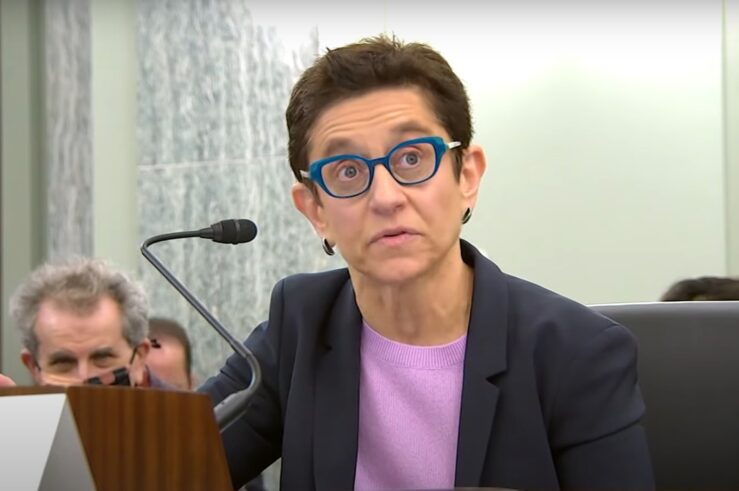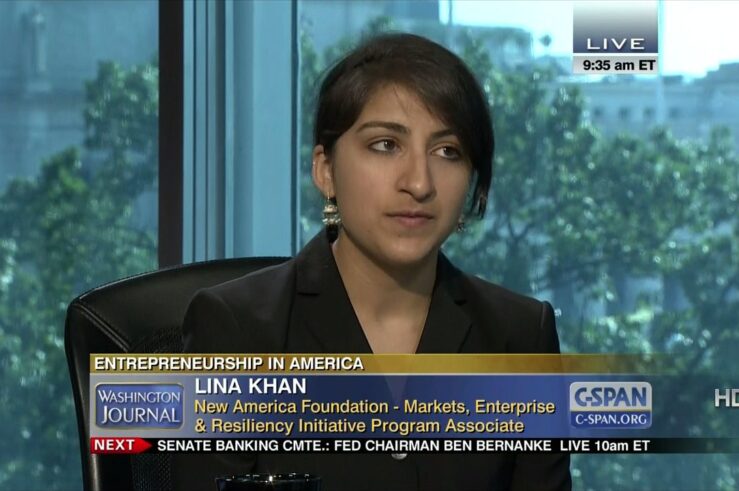Showing archive for: “FCC”
FTC Rulemaking and Unintended Consequences
For obvious reasons, many scholars, lawyers, and policymakers are thinking hard about whether the Federal Trade Commission (FTC) has authority to promulgate substantive “unfair methods of competition” (UMC) regulations. I first approached this issue a couple of years ago when the FTC asked me to present on the agency’s rulemaking powers. For my presentation, I ... FTC Rulemaking and Unintended Consequences
Chevron and Administrative Antitrust, Redux
[Wrapping up the first week of our FTC UMC Rulemaking symposium is a post from Truth on the Market’s own Justin (Gus) Hurwitz, director of law & economics programs at the International Center for Law & Economics and an assistant professor of law and co-director of the Space, Cyber, and Telecom Law program at the ... Chevron and Administrative Antitrust, Redux
The Major Questions Doctrine Slams the Door Shut on UMC Rulemaking
The Federal Trade Commission’s (FTC) current leadership appears likely to issue substantive rules concerning “unfair methods of competition” (UMC) at some point. FTC Chair Lina Khan, in an article with former FTC Commissioner Rohit Chopra, argued that the commission has the authority to issue UMC rules pursuant to the Federal Trade Commission Act based on ... The Major Questions Doctrine Slams the Door Shut on UMC Rulemaking
A Change in Direction for the Federal Trade Commission?
While antitrust and regulation are supposed to be different sides of the same coin, there has always been a healthy debate over which enforcement paradigm is the most efficient. For those who have long suffered under the zealous hand of ex ante regulation, they would gladly prefer to be overseen by the more dispassionate and ... A Change in Direction for the Federal Trade Commission?
The Return of (De Facto) Rate Regulation: Title II Will Slow Broadband Deployment and Access
President Joe Biden’s nomination of Gigi Sohn to serve on the Federal Communications Commission (FCC)—scheduled for a second hearing before the Senate Commerce Committee Feb. 9—has been met with speculation that it presages renewed efforts at the FCC to enforce net neutrality. A veteran of tech policy battles, Sohn served as counselor to former FCC ... The Return of (De Facto) Rate Regulation: Title II Will Slow Broadband Deployment and Access
The FTC’s Privacy Report Fails to Justify Asymmetric Regulation of ISPs
Others already have noted that the Federal Trade Commission’s (FTC) recently released 6(b) report on the privacy practices of Internet service providers (ISPs) fails to comprehend that widespread adoption of privacy-enabling technology—in particular, Hypertext Transfer Protocol Secure (HTTPS) and DNS over HTTPS (DoH), but also the use of virtual private networks (VPNs)—largely precludes ISPs from ... The FTC’s Privacy Report Fails to Justify Asymmetric Regulation of ISPs
The BIF Offers a Good First Step for Broadband, but the Devil Will Be in the Details
Capping months of inter-chamber legislative wrangling, President Joe Biden on Nov. 15 signed the $1 trillion Infrastructure Investment and Jobs Act (also known as the bipartisan infrastructure framework, or BIF), which sets aside $65 billion of federal funding for broadband projects. While there is much to praise about the package’s focus on broadband deployment and ... The BIF Offers a Good First Step for Broadband, but the Devil Will Be in the Details
A First Glance at the Biden Executive Order on Competition: The Good and the Bad (Including Much that Looks Ugly)
The Biden Administration’s July 9 Executive Order on Promoting Competition in the American Economy is very much a mixed bag—some positive aspects, but many negative ones. It will have some positive effects on economic welfare, to the extent it succeeds in lifting artificial barriers to competition that harm consumers and workers—such as allowing direct sales ... A First Glance at the Biden Executive Order on Competition: The Good and the Bad (Including Much that Looks Ugly)
Build Broadband Better: Focus on Competition, Not Competitors
President Joe Biden named his post-COVID-19 agenda “Build Back Better,” but his proposals to prioritize support for government-run broadband service “with less pressure to turn profits” and to “reduce Internet prices for all Americans” will slow broadband deployment and leave taxpayers with an enormous bill. Policymakers should pay particular heed to this danger, amid news ... Build Broadband Better: Focus on Competition, Not Competitors
What Lina Khan’s appointment means for the House antitrust bills
Her appointment also comes as House Democrats are preparing to mark up five bills designed to regulate Big Tech and, in the process, vastly expand the FTC’s powers. This expansion may combine with Khan’s appointment in ways that lawmakers considering the bills have not yet considered. This is a critical time for the FTC. It ... What Lina Khan’s appointment means for the House antitrust bills
ITSA Foreshadows Final Act in 5.9GHz Fight
It’s a telecom tale as old as time: industry gets a prime slice of radio spectrum and falls in love with it, only to take it for granted. Then, faced with the reapportionment of that spectrum, it proceeds to fight tooth and nail (and law firm) to maintain the status quo. In that way, the ... ITSA Foreshadows Final Act in 5.9GHz Fight
The FTC Did Not ‘Fumble the Future’ in Its Google Search Investigation
Politico has released a cache of confidential Federal Trade Commission (FTC) documents in connection with a series of articles on the commission’s antitrust probe into Google Search a decade ago. The headline of the first piece in the series argues the FTC “fumbled the future” by failing to follow through on staff recommendations to pursue ... The FTC Did Not ‘Fumble the Future’ in Its Google Search Investigation












